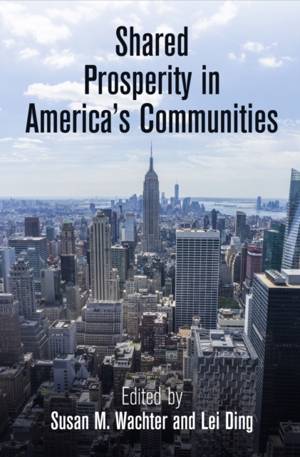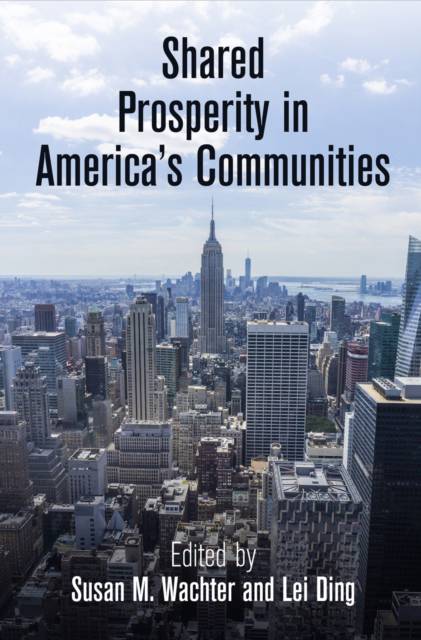
- Afhalen na 1 uur in een winkel met voorraad
- Gratis thuislevering in België vanaf € 30
- Ruim aanbod met 7 miljoen producten
- Afhalen na 1 uur in een winkel met voorraad
- Gratis thuislevering in België vanaf € 30
- Ruim aanbod met 7 miljoen producten
Shared Prosperity in America's Communities
Omschrijving
While the nation's GDP has doubled in the last thirty years, significant increases in family income have been restricted to a small subset of the American population. This disjunct between national economic growth and stagnating incomes in all but the very top tier of the population corresponds with increasing economic inequality and a lack of social and economic mobility. As a consequence, neighborhoods and metropolitan areas have become more polarized. Stark geographic differences in levels of poverty, income, health outcomes, job opportunities, lifetime earning potential, and educational attainment highlight the degree to which place matters in terms of social and economic opportunity.
Shared Prosperity in America's Communities examines this place-based disparity of opportunity and suggests what can be done to ensure that the benefits of economic growth are widely shared. Contributors' essays explore social and economic mobility throughout the country to illuminate the changing geography of inequality, offer a portfolio of strategies to address the challenges of place-based inequality, and show how communities across the nation are implementing change and building a future of shared prosperity. Approaching the problem from the vantage point of economics, sociology, and public policy, Shared Prosperity in America's Communities offers a timely analysis of the country's growing socioeconomic and geographic division and shows how communities can respond to the challenge of economic inequality to build a nation of opportunity for all. Contributors: J. Cameron Anglum, Timothy J. Bartik, Chris Benner, Angela Glover Blackwell, Anthony P. Carnevale, Raj Chetty, Rebecca Diamond, Lei Ding, Paul A. Jargowsky, David N. Karp, Elizabeth Kneebone, Douglas S. Massey, Jeremy Nowak, Manuel Pastor, Victor Rubin, Chris Schildt, Nicole Smith, Margery Austin Turner, Susan M. Wachter, Zachary D. Wood.Specificaties
Betrokkenen
- Uitgeverij:
Inhoud
- Aantal bladzijden:
- 280
- Taal:
- Engels
- Reeks:
Eigenschappen
- Productcode (EAN):
- 9780812247855
- Verschijningsdatum:
- 6/04/2016
- Uitvoering:
- Hardcover
- Formaat:
- Genaaid
- Afmetingen:
- 160 mm x 231 mm
- Gewicht:
- 589 g

Alleen bij Standaard Boekhandel
Beoordelingen
We publiceren alleen reviews die voldoen aan de voorwaarden voor reviews. Bekijk onze voorwaarden voor reviews.










